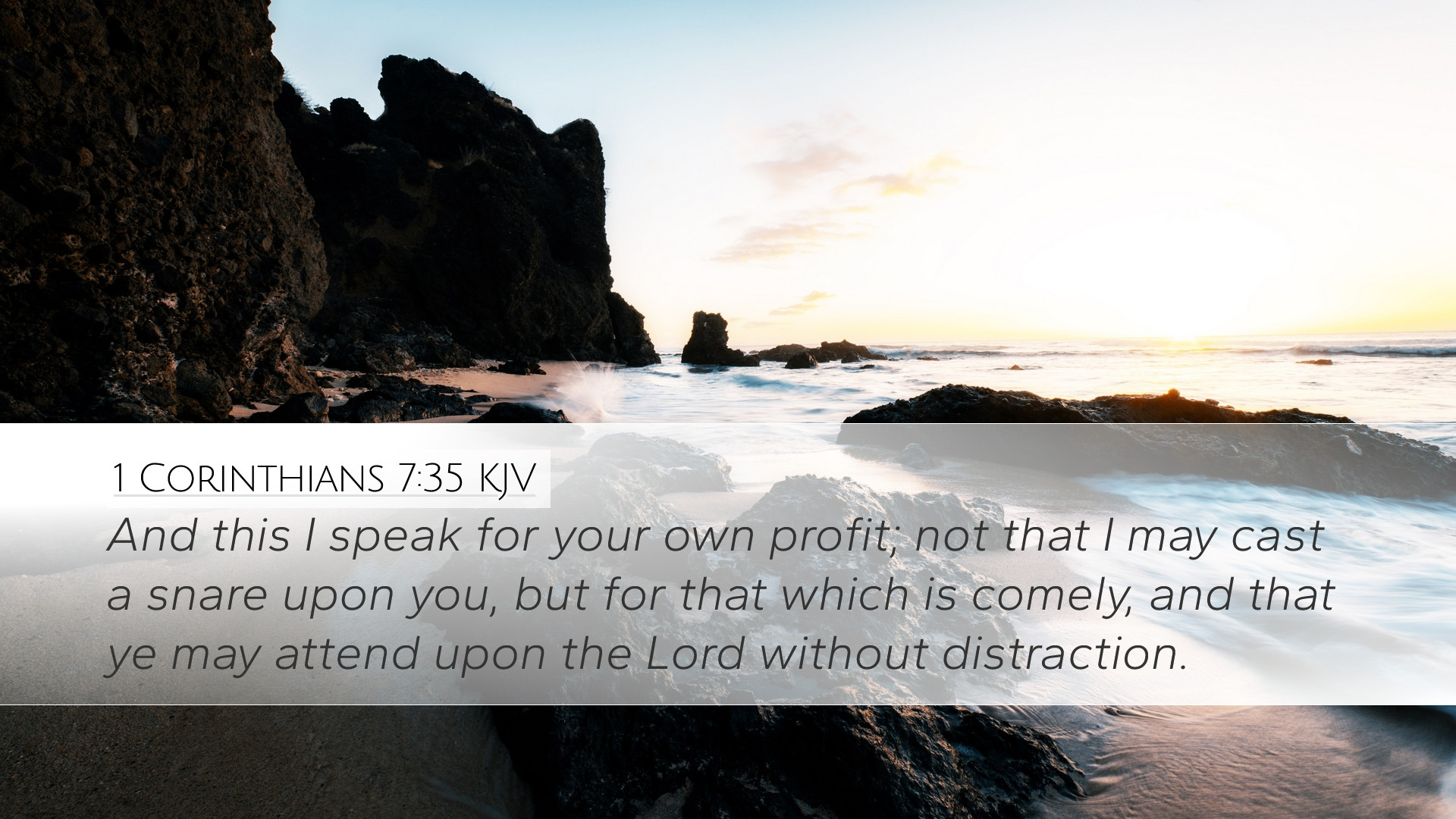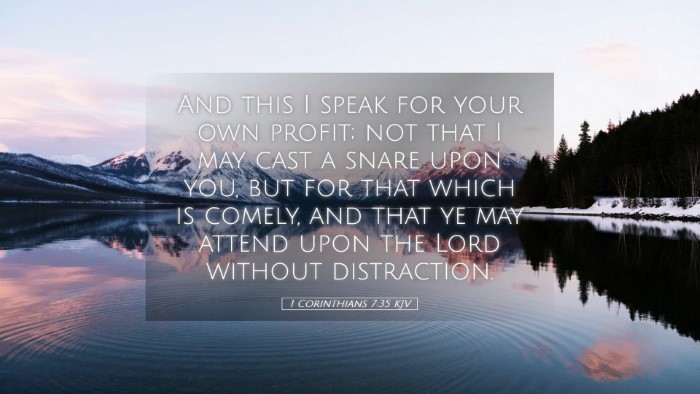Commentary on 1 Corinthians 7:35
Verse: 1 Corinthians 7:35 - "And this I say for your own profit; not that I may put a leash on you, but for what is proper, and that you may serve the Lord without distraction."
Introduction
The Apostle Paul addresses the church in Corinth concerning issues related to marriage and singleness. In this verse, he emphasizes the purpose behind his guidance—not to impose restrictions but rather to provide clarity for living a life that is focused on serving the Lord.
Purpose of Paul’s Guidance
Matthew Henry notes that Paul's intention is not to deprive anyone of their rights but to direct them towards a better spiritual standing. He acknowledges that while marriage is honorable, remaining single can allow for greater devotion to God.
The Profitable Nature of Paul’s Advice
Albert Barnes emphasizes the word "profit" in this context, suggesting that the counsel Paul offers aims at spiritual and eternal benefit. Paul seeks to guide the Corinthians towards a form of life that enhances their relationship with God.
The Concept of Freedom
Adam Clarke elucidates that Paul provides these guidelines as a form of liberation rather than bondage. He stresses that a married person has to divide their attention between family responsibilities and spiritual commitments, while a single individual can devote themselves fully to the service of the Lord.
Serving the Lord Without Distraction
This phrase encapsulates the essence of Paul's teaching. He encourages believers to prioritize their service to God, which can sometimes be overshadowed by earthly concerns. Here, Clarke remarks that the goal is to maintain a pure and devoted life to Christ, unmarred by the challenges that married life often introduces.
Contextual Analysis
Understanding the cultural and historical background of the Corinthian church is vital. The Corinthians were navigating a society filled with moral complexities and distractions. Matthew Henry stresses that Paul’s advice rings true for Christians today who face similar distractions in their own lives.
- Societal Pressures: The Corinthian society placed high value on marriage and social status, often conflicting with the spiritual duties that Paul advocated.
- Spiritual Focus: The call to serve God wholeheartedly remains a relevant principle, irrespective of one’s marital status.
Implications for Pastoral Practice
For pastors and spiritual leaders, this verse offers profound insights into guiding congregants in their personal lives. It invites them to assess the lifestyle choices of their members and to encourage a singular focus on serving the Lord as they lead their communities.
Balancing Life’s Commitments
Pastors can use this verse to teach the importance of prioritization, encouraging believers to seek first the Kingdom of God. Barnes highlights that this does not preclude marriage but rather establishes an understanding that each state carries different responsibilities and opportunities for service.
Conclusions from the Commentaries
The insights from these commentaries indicate that the heart of 1 Corinthians 7:35 lies in promoting spiritual well-being and commitment. Each commentator, be it Matthew Henry's pastoral perspective, Albert Barnes's analytical approach, or Adam Clarke’s contextual interpretations, converges on the idea that serving the Lord should be paramount, regardless of one’s marital status.
- Focus on Service: Both single and married believers can serve effectively, but the nature of that service may differ.
- Freedom in Choices: Believers must understand that their life choices should lead to a fuller expression of their faith.
- Encouragement for Personal Reflection: This verse challenges individuals to reflect on their commitments and their capacities for serving God.
Final Thoughts
In conclusion, Paul’s words in 1 Corinthians 7:35 call us to evaluate our lives in the light of our responsibilities towards God. Enveloped in the wisdom of these public domain commentators, we find practical applications that resonate with the ongoing call for dedication in our spiritual walk.


